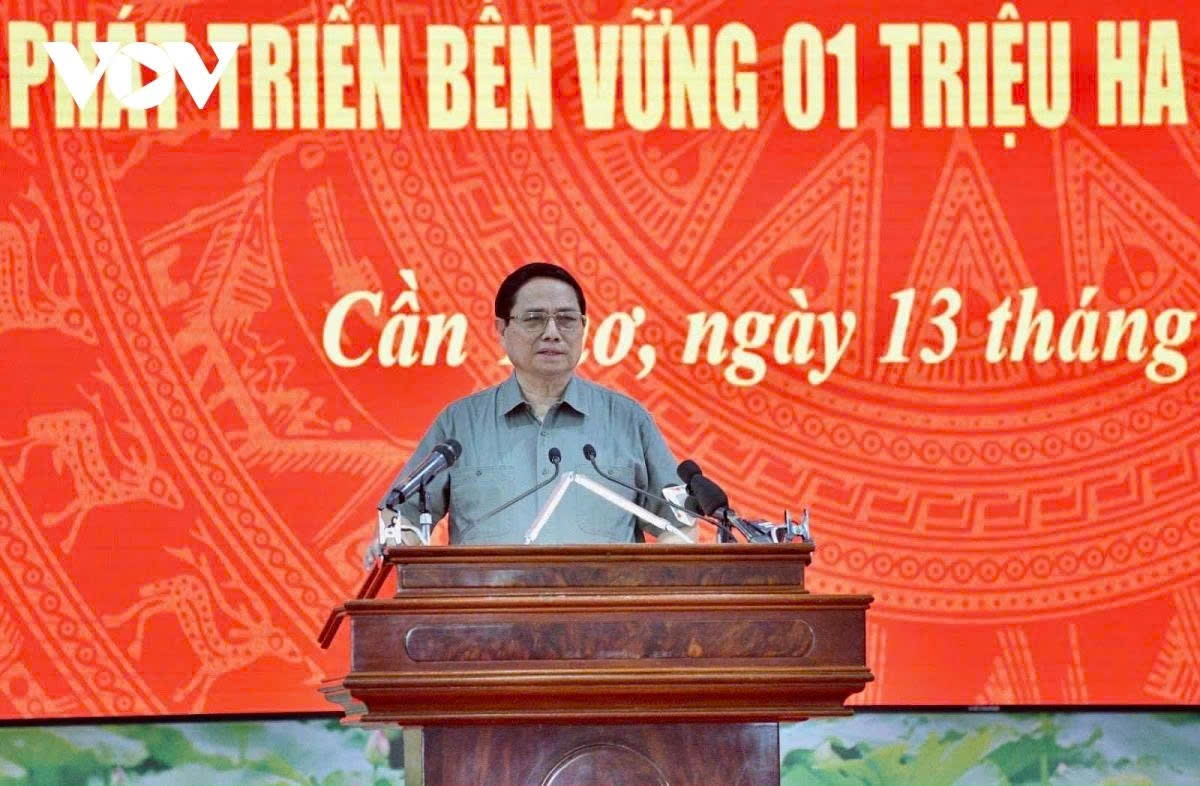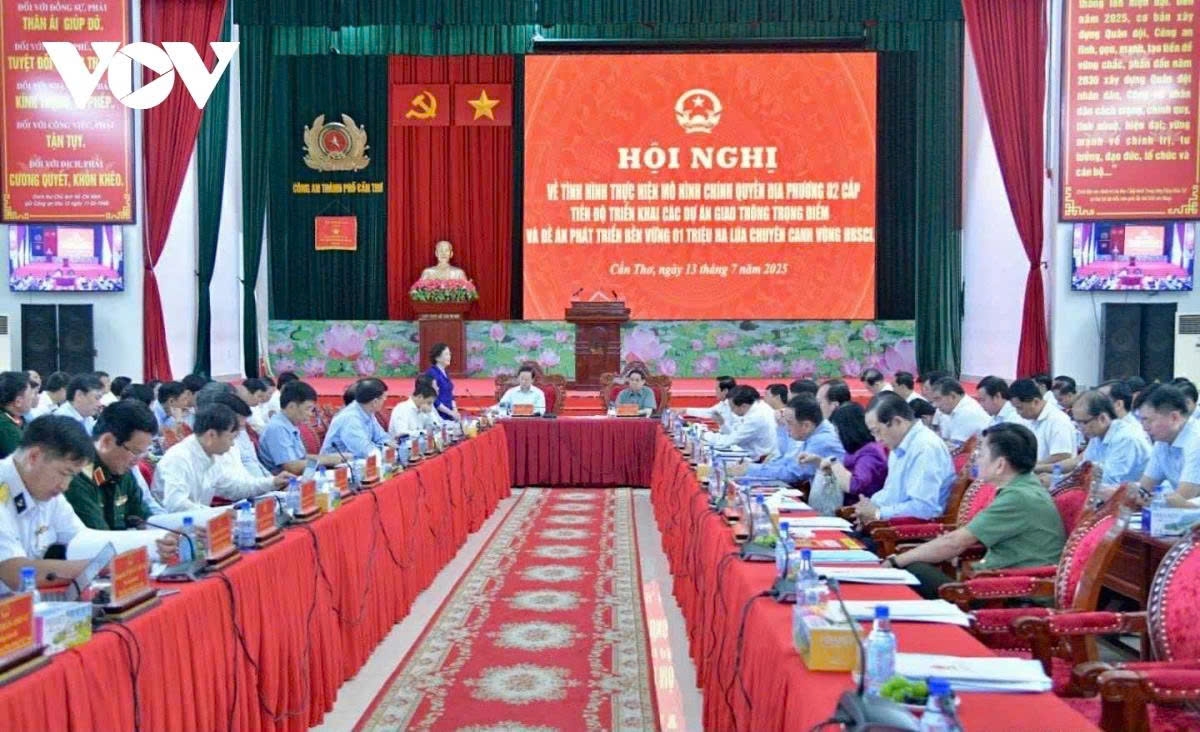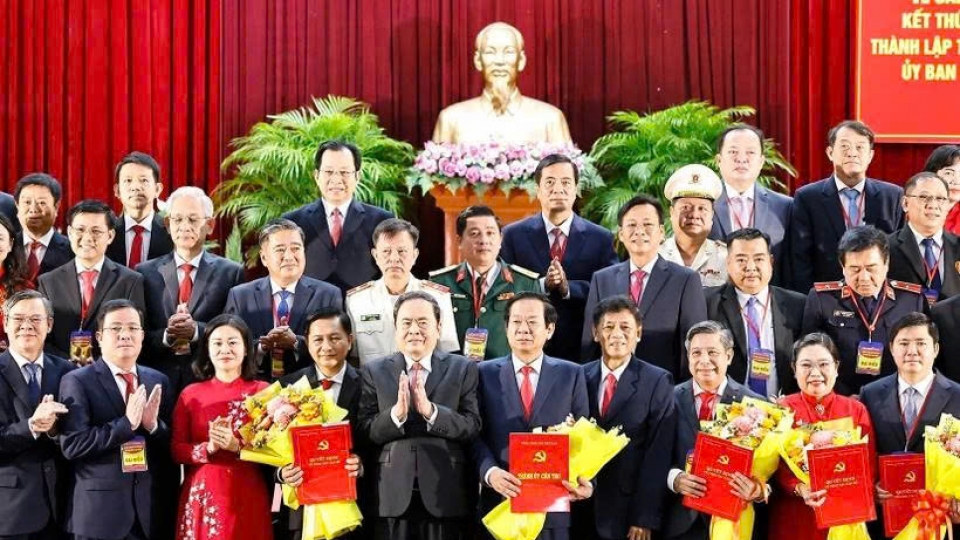PM inspects implementation of two-tier local government model in Can Tho
VOV.VN - Prime Minister Pham Minh Chinh on July 13 chaired a conference to review the implementation of the two-tier local government model in Can Tho city and other localities in the Mekong Delta region.

The conference also assessed the progress of key transport infrastructure projects, especially those for the coming APEC Summit and the ongoing project to develop one million hectares of high-quality, specialized rice cultivation in the Mekong Delta region.
In his opening remarks, the Prime Minister highlighted the purpose of the meeting, which he said was particularly to identify challenges related to Party work, local governance, the Fatherland Front, and citizen engagement.
He expressed particular concern regarding the quality of grassroots personnel, their administrative efficiency, and attitudes in public service. Acknowledging transitional limitations in political and professional qualifications, he stressed the need for continued capacity building to ensure a competent, responsive, and people-centred administration.
Regarding infrastructure in the Mekong Delta, the Government leader requested a review of any obstacles arising after the reorganisation, and called for accelerated progress on key projects, especially those tied to the 2027 APEC Summit, which will be hosted in Phu Quoc. He also urged localities to resolve issues related to construction materials to keep highway development on schedule.

With regard to the Can Tho Oncology Hospital project, he asked the city to promptly present a detailed plan to restart and complete the project as soon as possible.
On inland waterways, he noted sluggish progress and instructed authorities to speed up the connection of key provinces like Vinh Long, Tra Vinh, and Ben Tre. He also called for feasibility studies for a high-speed railway line between Can Tho and Ho Chi Minh City, aiming to reduce road traffic congestion.
Highlighting the significance of food security, the Prime Minister underlined the strategic role of the 1-million-hectare high-quality rice project in both serving domestic demand and expanding stable export markets. He noted that countries such as the Philippines, Malaysia, Indonesia, and Singapore have signed rice trade agreements with Vietnam, presenting valuable long-term opportunities and helping farmers avoid the “good harvest, low price” paradox.
On this occasion, the Prime Minister also urged newly reorganised localities to define new growth scenarios tailored to the post-restructuring context. He stressed the urgent need to eliminate substandard housing for policy-beneficiary families and people with meritorious service to the revolution, aiming for completion by the end of July 2025.





